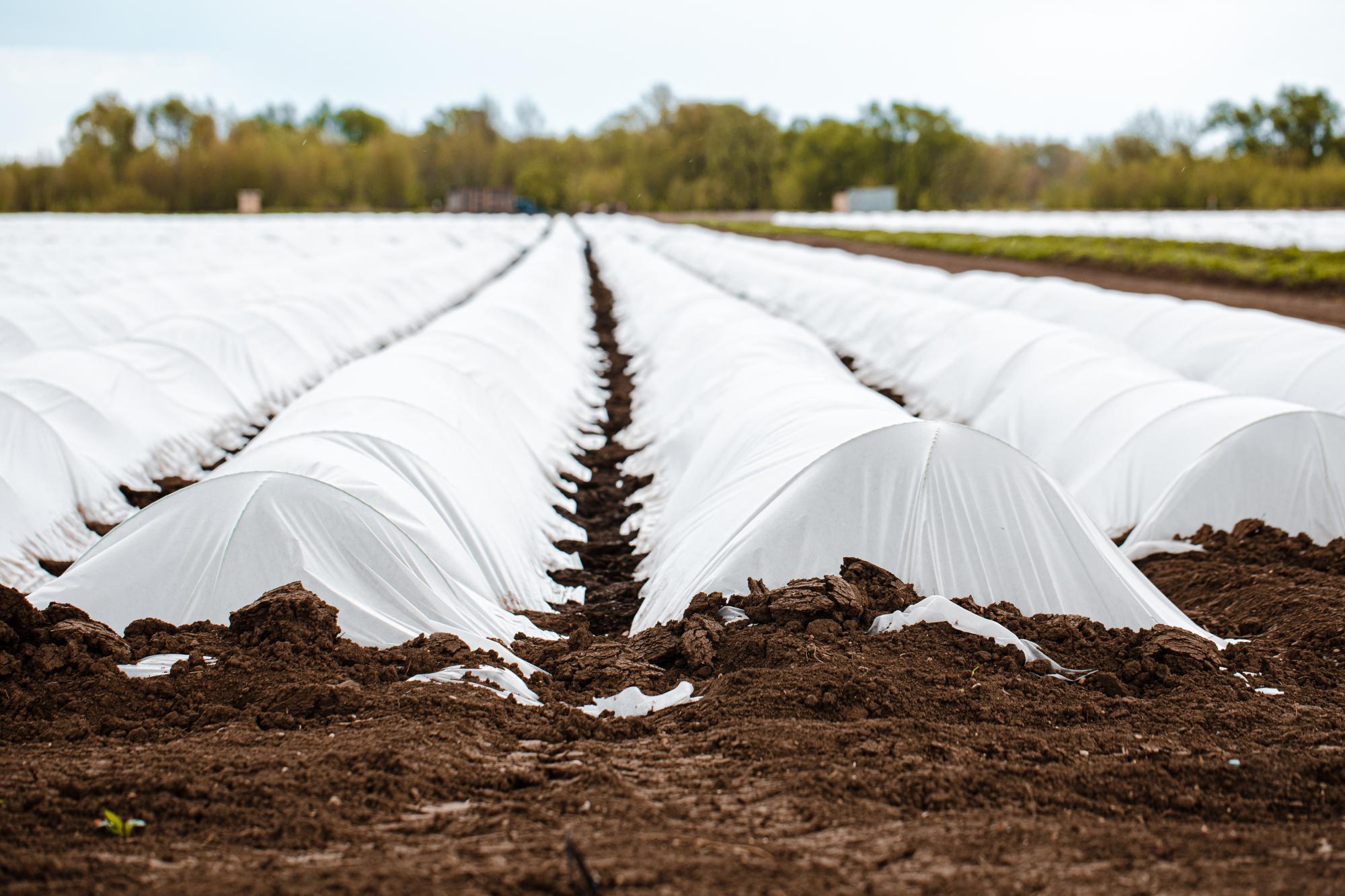Willem van Hoof, Business Development Manager at Bluehub, is at the forefront of a groundbreaking initiative: the National Collection of Agricultural Plastics.
From Venlo, Bluehub works, among other things, on innovative projects that address waste and encourage reuse. One such project, the Horticultural Residual Flows Platform, aims to radically change the way plastic waste from agriculture is processed. By coordinating the recycling of agricultural plastic on a national level, the ambition is to build a strong circular network in which farmers, plastic producers and recyclers work together toward a more sustainable Netherlands.
The plastic problem
"The amount of plastic used in horticulture, among other things, is enormous," Willem begins. "Growers use films to prevent weeds and protect crops from the increasingly unpredictable weather. But at the end of the season, they are left with a big pile of waste, often full of sand and other debris."
The contaminated plastic residue is difficult to recycle, and disposal costs for farmers are now running high. "Many greenhouse vegetable growers use walking film as a kind of large garbage bag, into which anything left in the greenhouse is rolled," he explains. "That makes the plastic harder to recycle and increasingly expensive to dispose of." The Horticultural Residue Streams Platform seeks to help farmers make better use of residual streams and reduce costs.
"A greenhouse vegetable grower quickly finds himself with a ton of plastic per acre"
Learning from other countries
In the Netherlands there are some regional initiatives for agricultural plastic collection, but a national system is still lacking. Willem explains how approaches in Germany and France provide inspiration: "There, plastic producers and recyclers have set up a system themselves. In Germany, producers pay an eco-fee to finance the recycling chain. The government puts the choice on them: regulate it yourself, or we impose rules. That pressure encourages companies to cooperate."
Bluehub is working with partners such as the LLTB, LIOF, NRK Federation and Greenport West-Holland to create a similar system for the Netherlands. The idea is to bring all the separate agricultural plastic collection initiatives together under one umbrella, a "one-stop shop" for farmers looking for a solution for all their plastic waste.
"Our goal is to create a one-stop shop where farmers and gardeners can find all the information about what they can do with their plastic waste, what the recycling rules are and where to go," explains Willem. "That way, the whole process will be more clear and hopefully more attractive."

From regional initiative to national impact
Willem emphasizes that the impact of this project will be greater if it is tackled on a national scale. "Many regional initiatives unfortunately remain small, while sustainability in agriculture requires a broad approach. By making this initiative a national network, we hope to make a lasting difference," he says.
This means that support is needed from various parties: plastic producers, recycling companies, farmers and the government. That way, everyone can contribute to a sustainable agricultural system. "Many entrepreneurs would like to become more sustainable, but it has to be feasible and affordable," says Willem. "We want to make recycling as accessible as possible, so farmers know where they stand without it creating extra work for them."
"We won't make the real difference until we can organize this at the national level"
Practical solutions for farmers and gardeners
William believes it is essential to keep agricultural plastic recycling simple. He has seen how the complexity of certain regulations and recycling standards can sometimes be a stumbling block. "You can't just say to a farmer that the plastic should contain a maximum of 20% sand," he says. "How do you measure that as a farmer? And for the driver collecting the waste, it's just as tricky."
So guidelines are being developed that farmers can follow without complicated inspections. The idea is to develop work processes that ensure the quality of the delivered plastic residue streams without becoming an additional burden. "We just want to offer practical steps. Farmers should be able to do it without hassle, with the assurance that their waste streams are suitable for recycling," William said.
"We need to make sure the recycling chain is well organized now"
National Collection of Agricultural Plastics
Although an official name has not yet been determined, Willem is tentatively calling it National Collection of Agricultural Plastics. The team is now taking the first steps, and if all goes according to plan, the first waste streams could be recycled by the end of next year. The response from the industry is already encouraging, and there have been positive reactions from parties participating in similar projects in Germany.
"It is a great opportunity for the Netherlands to lead the way in circular agricultural practices," concludes Willem. "This project is not only about waste management, but also about creating a sustainable agricultural chain that benefits farmers, producers and recyclers together. The first steps have been taken."
Through the efforts of all initiators, there is a real chance that the Netherlands will soon have a national system for recycling agricultural plastics.
Learn more
Do you have questions or want to join? Contact Willem van Hoof at willem@bluehub.nl / +31 (0)6 89 97 33 77.